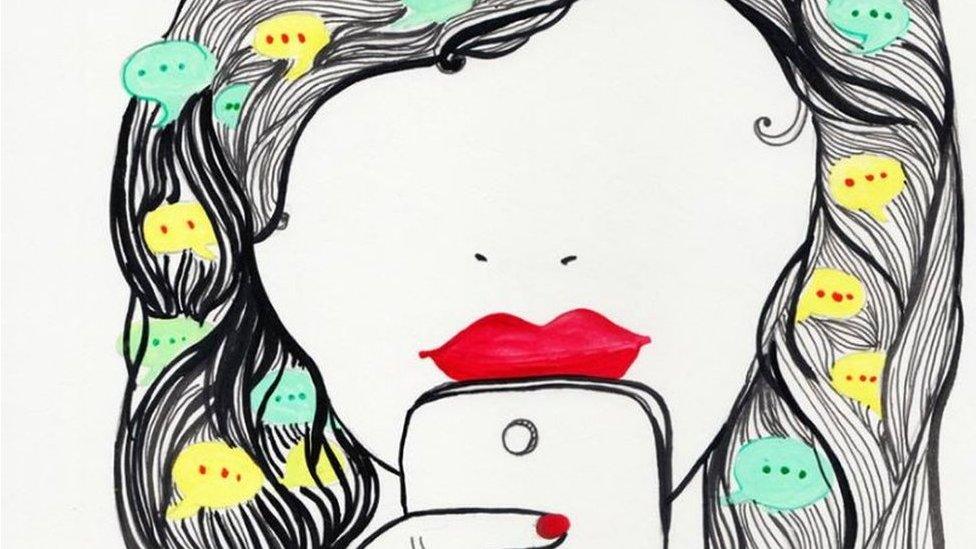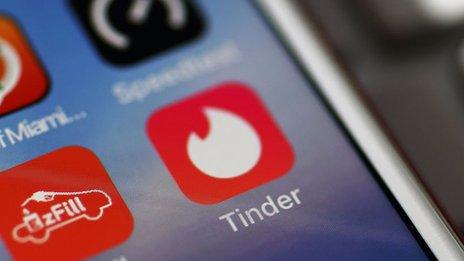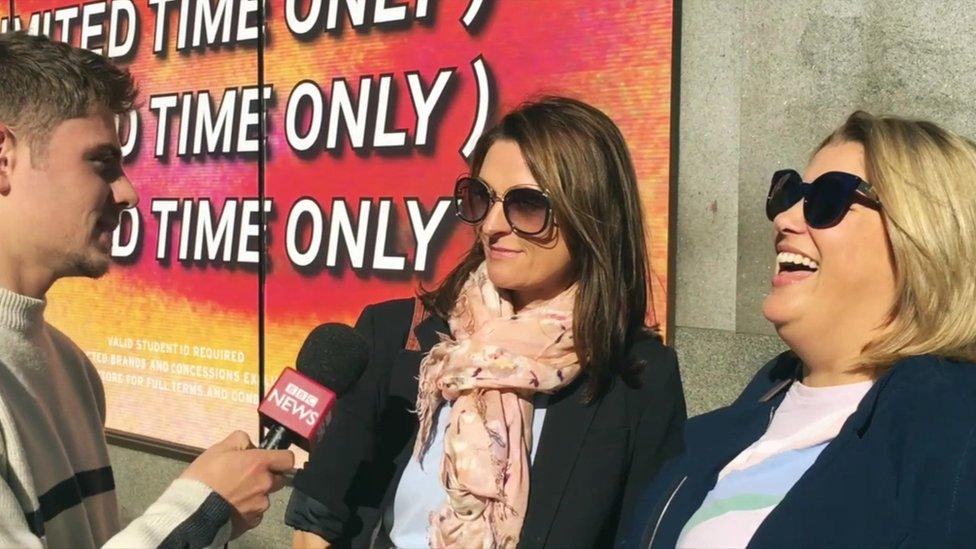Viewpoint: 'Why most men should pay on first dates'
- Published

Anne argues societal innate inequalities mean that splitting the bill isn't fair
Anne Rucchetto, 27, is a writer living in Toronto, Canada. As part of the BBC's 100 Women series, she writes about why it matters who picks up the bill.

When I first began dating, my mother warned me that there was "no such thing as a free drink".
She would elaborate gravely: "Men will think you owe them something."
I know my mother didn't mean to fill me with dread, but her statement left me troubled each time I met someone new. It took me time to relinquish the sense of obligation I felt to men who covered the cost of my $5 beer - but since then, I've never looked back.
As someone who's been dating since the age of 14, I've spent a lot of time thinking and talking about ways to find a great partner, as well as what behaviours to look for when meeting someone for the first time.
These days finding a date is easier than ever, with apps and online communities for people of every conceivable orientation, identity, and background.
But who should pay for the first date always sparks a spirited conversation.
I used to embrace the logic that for women to be treated as equal to men, we should pay for our own share, and split the bill with our date. To make sure that's never a problem, I've always suggested affordable dating venues - cheap and cheerful restaurants, dive bars, gigs, parks.
About five years ago my friends and teachers introduced me to ideas that made me question that approach.
I became aware of feminist writers like Gloria Jean Watkins (known by her pen name bell hooks) who made me think about who benefits most from the current structure of society. She and others got me thinking about the way power functions at the every level, including small individual exchanges.
'More expensive lifestyles'
People benefit differently based on the current structure of society, so depending on who we're spending time with, it shouldn't be expected for both parties to pay equal amounts.
Women, on average, earn less than men. Canadian women, on average, earn C$0.69 for every dollar a man makes, external at work.
This doesn't mean that our cost of living is cheaper - in many cases, it can be more expensive.
Expectations around women's appearances and behaviour have material and personal costs. Women's physical appearances are held to impossibly high standards and a routine subject of ridicule everywhere from the entertainment industry to The White House.
We are expected to be calmer, more attentive, understanding, flexible, and accommodating than men in every area of our lives - in family, work, relationships, and friendships. Meeting these norms is costly - materially and emotionally.
Furthermore, who pays cannot be reduced to an issue of men versus women. We all have different experiences based on our gender, social and economic status, race, citizenship, and more.
Ultimately, equality is not the same as equity. Equality is everyone getting the exact same pair of shoes. Equity is everyone getting a pair of shoes that fits them. In good relationships, people will strive for equity.
When I went on a first date with a man who spent most of the time boasting about his sports car and travels, it confused me when he wanted to split the bill. Curiously, it is often these privileged men that have declared to my friends and I: "I'm a feminist, so we'll split it"
Whether or not men believe women's labour is underpaid, it is. Further, whether or not men agree with women being underpaid, they directly benefit from it.
This isn't to say that men don't work hard or should always pay - when I've been in situations where it is obvious that I have more income than the man I'm dating, I am happy to split or cover the bill.
If I sense that a man correlates his paying for a first date with me "owing" him in some way, I will insist on paying for both of us and shut down any chance of further communication. This kind of primitive thinking shows a lack of perspective, respect, and consent.
'Challenging imbalances'
I have dated both men and women, and funnily enough, anytime I've dated a woman, or gender-diverse person we've ended up competing to pay the bill.
I've been with my partner, Zac, for over a year now. I had a good feeling about him when he told me he loved animals, described his appreciation for his friends, and shared his views about labour rights. He paid for our first date and I paid for our second.
Now, we share expenses based on what we can afford when we go out together or visit each other's homes. This might change in the future, but we've found a balance that works for both of us. Our most important goal is to make sure that both of us feel respected and that neither of us feel underappreciated or taken advantage of.
First dates are one small opportunity to recognise that people in society have different access to resources. If we want to be good company and good partners, challenging power imbalances is an important part of every relationship.
Who pays on a first date doesn't define the terms of the relationship.
As bonds develop, the people involved can work to find terms that suit them. Regardless of the expectations we might have about who should (or shouldn't) pay on a first date, it's always good to be considerate.


What is 100 Women?
BBC 100 Women names 100 influential and inspirational women around the world every year and shares their stories.
It's been a momentous year for women's rights around the globe, so in 2018 BBC 100 Women will reflect the trailblazing women who are using passion, indignation and anger to spark real change in the world around them.
Related topics
- Published29 October 2018

- Published25 September 2018

- Published7 September 2018

- Published1 October 2018
